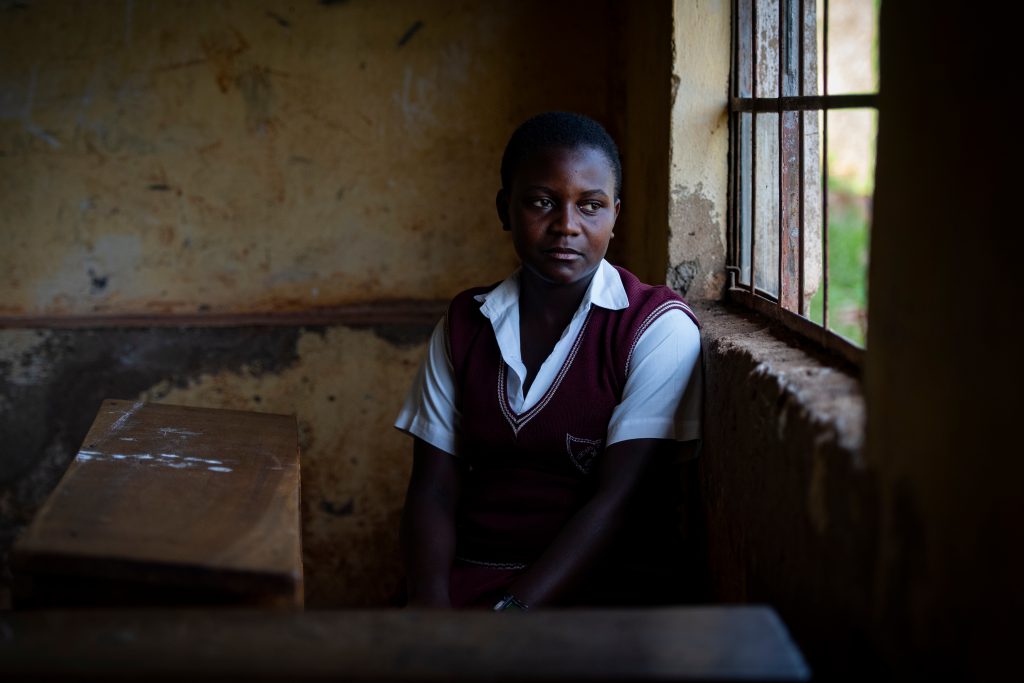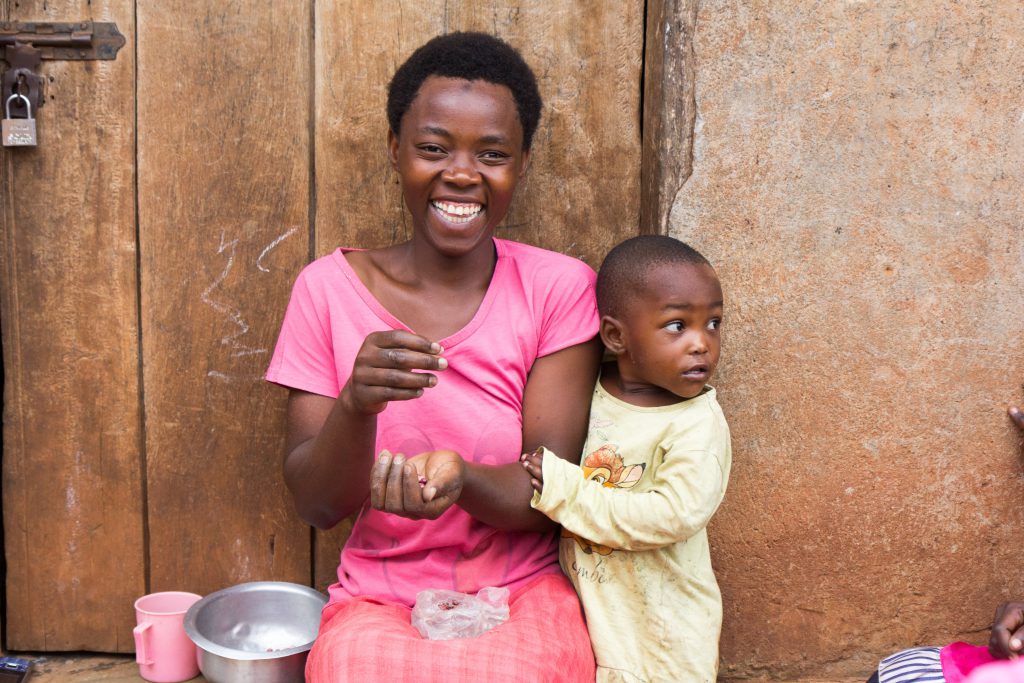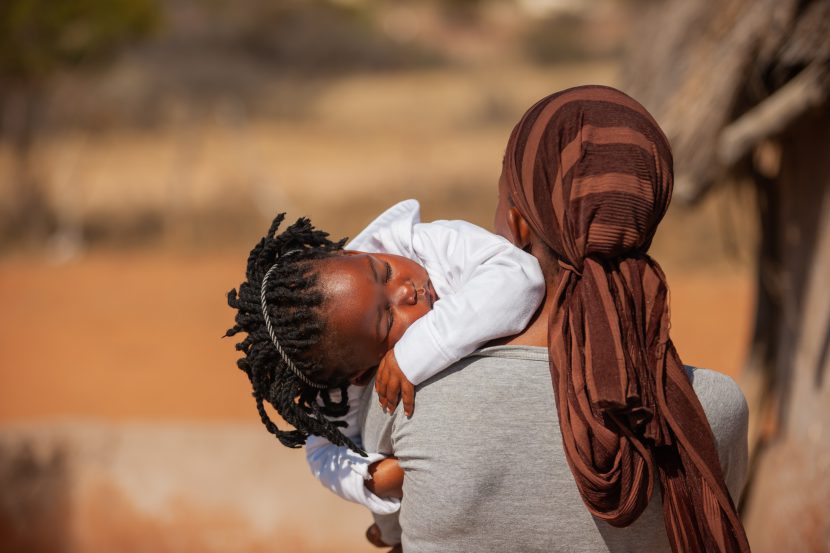Africa is one of the continents with the most alarming numbers of adolescent pregnancies in the world (UNFPA, 2022). While many of those pregnancies happen in child marriages, which is another issue that many countries across Africa are not addressing successfully, another cause is insufficient sexual and reproductive health education and a lack of information about modern contraceptive methods. In addition, many young girls in Africa suffer sexual abuse and exploitation due to war and natural disasters which heavily impact their post-pregnancy integration into the educational system.
The impact of early pregnancy on education across Africa
Pregnancy among teenage mothers is an important obstacle on their path to continuing with their education. Decades of poverty, wars, natural disasters, and gender-based violence in this continent combined with a lack of education and a poor law system cause a high number of early pregnancies among young girls. Becoming pregnant often brings social and moral judgments and financial burdens on their families, which is one reason they discontinue going to school.
The lack of adequate laws, guidelines, and policies doesn’t contribute positively to this matter either. Moreover, most teenagers and adolescents are not provided with family planning services. Every African girl has a right to education and education should be free from discrimination. However, certain African government policies and laws have made and are still making this difficult because they directly violate international human rights laws by pushing pregnant girls and young mothers out of schools (Human Rights Watch, 2022).
Covid-19 pandemic and its contribution to the issue
During the Covid-19 pandemic, these already high numbers reached their highest peak across African countries which is directly linked to increased poverty and schools being closed for several months. Covid-19 altered the educational system in this continent and gender equality in the school system in a negative manner.
Inadequate and discriminating laws impeded school re-entry for almost one million pregnant and young teenage mothers (Accelerate hub, 2022). As the future of many African girls was at risk during and especially after pandemics, a solution and attention from the African Union were highly important.
“Without a safe school environment, unsupervised spare time, and reduced sexual and reproductive health education and services, an increase in unintended adolescent pregnancies was anticipated”.
– Accelerate hub, 2022
Post-pandemic situation
After the pandemic, more than 30 African countries (out of 54) approved laws that protect young girls´ right to continue being involved in the educational system during and after their pregnancies (Human Rights Watch 2022). These laws are a key to the solution to this problem as without them schools can make arbitrary decisions on the fate of young teenage mothers or pregnant girls.
Therefore, many countries gave a big step forward in solving this issue. For example, before the Covid-19 pandemic, Uganda had a law that prohibited pregnant girls to access school after three months of being pregnant. At that stage of pregnancy, they were forced to go on maternity leave from school (Human Rights Watch 2022). Nevertheless, in December 2020, Uganda abolished restrictive policies and since then has been permitting young mothers and pregnant girls to attend school. Moreover, they updated the guidelines regarding the prevention of pregnancies (AllAfrica, 2022).

The country of Sierra Leone is another example where decade-long laws that discriminated against pregnant schoolgirls and young mothers have been eradicated and new laws have been adopted where young mothers, and pregnant girls are included in the educational system (Unicef, 2021). Apart from guidance, policies, and laws, many countries are trying to fight stigma and discrimination toward young mothers or pregnant girls (AllAfrica, 2022) which is another crucial aspect that needs to be significantly approved to assure a thorough change of this situation.
Current barriers faced by young mothers accessing their right to education
The implementation of post-pandemic laws varies among countries due to the lack of clear guidance on how they can continue their schooling (Human Rights Watch, 2022). Many countries still need to establish concise frameworks that would allow these girls to be able to re-enter the school system without any discriminatory barriers. At this moment, no less than 10 African countries have lawless systems and no policies on how to keep the number of pregnant girls and teenage mothers high in schools.
On the contrary, there are African countries that have laws that directly punish sexual relationships outside of marriage (Human Rights Watch, 2022). Apart from that, cultural stigma and prejudices consider that this type of pregnancy brings disgrace to families and their schooling is often brought to an end to avoid shame.
“In addition to providing counseling, schools should consider day-care support for such girls and, where possible, support teenage mothers and their parents in income-generating activities that support the baby and help retain the teenage mother in school.”
– Global Partnership, 2022
Prevention and solution of the problem
Firstly, instead of trying to find solutions to issues such as early pregnancy and motherhood of young African schoolgirls, it is paramount to recognize the importance of prevention. Therefore, the African Union should establish a strong relationship and constructive and consistent communication with governments across Africa and work together on prevention strategies. Moreover, the governments should invest in the sexual education of young people in Africa, establish counseling services, and free psychological support, and work on gender-responsive pedagogy.
Apart from that, more needs to be done regarding the inclusion of pregnant teens and young mothers in public schools. Both current and future school workers should become sufficiently educated so they could meet the young teenage mothers´ needs. In addition, organizing daycare services so that adolescent mothers can attend school while their children are taken care of is essential as well. Countries such as Gabon, Zambia, Tanzania, Kenya, and Ethiopia are actively working on this initiative (Acceleratehub, 2022).
Moreover, every African country that hasn´t introduced any changes in its laws after the pandemic should reconsider thoroughly its policies that undermine girls´ education and, consequently, their future. Finally, fighting against stigma stereotypes and different discriminatory attitudes not only among students but also among teachers and parents is not to be neglected. This creates additional pressure for pregnant girls and young mothers who decide not to continue with their education so as not to be exposed to embarrassment. By making such decisions, many of them eventually stay at home and face their responsibilities as a parent without any kind of support.

Humanium has been working and will continue to work on educating young people in Africa, especially young mothers, through its numerous projects, on the importance of accessing their right to education. If you would like to help us in our efforts to improve the lives of young mothers and pregnant girls in Africa, consider making a donation, sponsoring a child, or becoming a volunteer. Every young mother has a right to pursue their education.
Written by Jovana Andjelkovic
References:
Accelerate Hub (2021), “Opening school doors to pregnant adolescents and adolescent mothers: What is needed to best support their educations?”, retrieved from: https://www.acceleratehub.org/news/opening-school-doors-to-pregnant-adolescents-and-adolescent-mothers-what-is-needed-to-best-support-their-education-2021/, accessed on September 12, 2022.
All Africa (2022), “Uganda recognizes pregnant teens´ right to education, but religion, stigma lock out most”, retrieved from: https://allafrica.com/stories/202203170007.html, accessed on September 12, 2022.
Global Partnership (2022), “School re-entry policies must be effective for teenage mothers in Africa”, retrieved from: https://www.globalpartnership.org/blog/school-re-entry-policies-must-be-effective-teenage-mothers-africa, accessed on September 12, 2022.
Human Rights Watch (2022), “Africa: Countries should remove barriers that keep young mothers out of school”, retrieved from: https://www.hrw.org/news/2022/08/04/africa-countries-should-remove-barriers-keep-young-mothers-out-school, accessed on September 13, 2022.
Human Rights Watch (2022), “Across Africa, many young mothers face education barriers”, retrieved from: https://www.hrw.org/news/2022/08/30/across-africa-many-young-mothers-face-education-barriers, accessed on September 13, 2022.
United Nation Population Fund (2022), “World Population Dashboard”, retrieved from: https://www.unfpa.org/data/world-population-dashboard, accessed on September 12, 2022.
Unicef (2021), “Radical inclusion in education”, retrieved from: https://www.unicef.org.uk/david-sengeh-education/, accessed on September 12, 2022.


